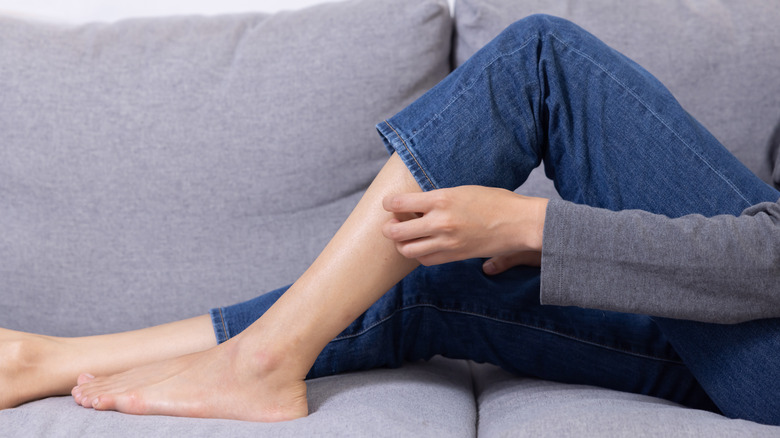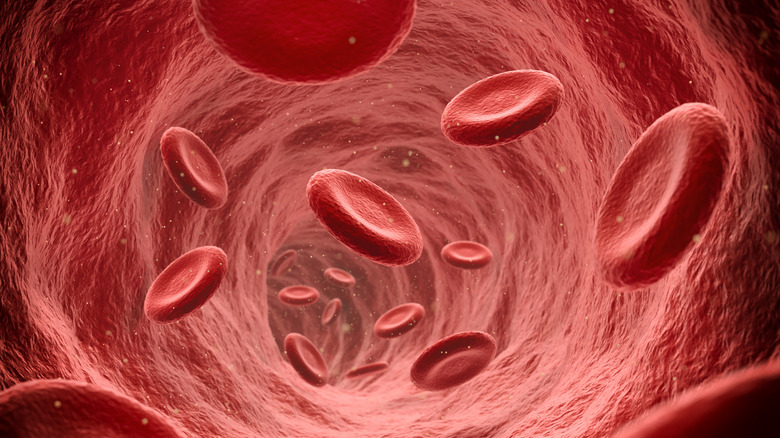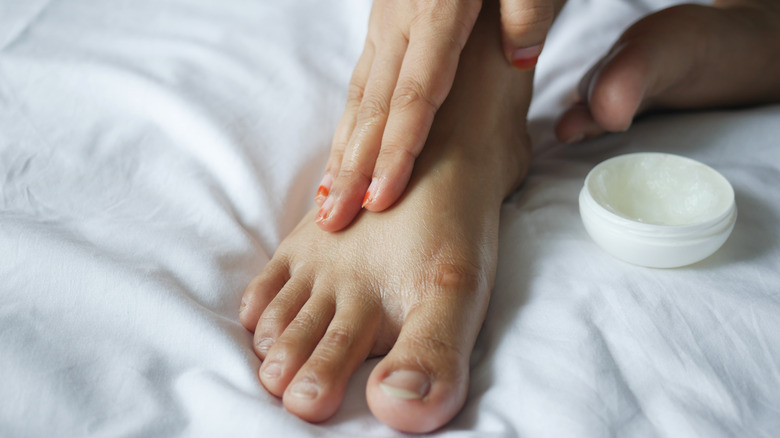Here's Why Your Scabs Always Itch
Maybe you picked a pimple or fell and scraped your knee, but beyond the initial pain of the injury, the worst is over, right? Well, not unless you count the incessant itching that accompanies a scab as the body mends itself.
So what exactly is a scab? Experts at Johns Hopkins Medicine explain that following skin damage, blood cells immediately get to work to stop the bleeding by coagulating, or clotting, in order to safeguard the wound. As the clot hardens, it eventually becomes a scab. Most of us can't wait for a scab to fall off and reveal a fresh patch of skin underneath. Depending on the severity of the wound, however, scabs may take days or even weeks to heal, reports Medical News Today.
While scabs play an important role in preventing infection, they can be rather irritating. Although it's always best to leave a scab alone, they certainly don't make it easy. Why is it that we always feel the urge to scratch an itchy scab?
Inflammation, histamine, and nerve aggravation
As it turns out, itching is simply a product of the body's natural response to injury. Part of this response involves inflammation as the body heals, which stimulates the nerves in our skin, resulting in itching sensations (via LiveScience). Scabs are usually at their most itchy during the first ten to 14 days of healing. Additionally, any movement of the scab can also prompt itching. "Every time that scab moves or shifts ... that movement will also tell those sensory nerves to send a signal to the brain to itch," Dr. Adam Friedman, professor and chair of dermatology at GW Medical Faculty Associates, tells LiveScience.
But that's not the only reason scabs can get so itchy. Experts at CityMD explain that the body's release of histamine is also to blame. Although this helps boost blood flow to the affected area, histamine is known to cause itching. Finally, the nerves in our skin become aggravated in response to physical trauma. As a result, one may feel pain, burning, or the urge to scratch.
How to keep itching to a minimum
Although it may be frustrating, that itching sensation you feel is actually a good sign. Even so, here are some tips for keeping the discomfort of an itchy scab to a minimum. First and foremost, keep the area clean by washing it lightly with water and a gentle soap before patting it dry — but not too dry! Our skin needs moisture, so keep your scab hydrated with petroleum jelly and lock it in with a bandage. Believe it or not, you'll have less of an urge to scratch if you keep your scab moist, rather than if you let it dry out (via LiveScience).
Periodic use of a cold compress may also help decrease itching. Just be sure to keep a protective barrier between your skin and the ice, such as a towel, and limit contact to just a couple of minutes. Aloe vera gel, calamine lotion, or other over-the-counter anti-itch products may also be helpful when used as directed. Above all, do what you can to keep yourself from scratching. If your itching is severe or accompanied by swelling, redness, or pus, see your doctor as this may indicate possible infection.



